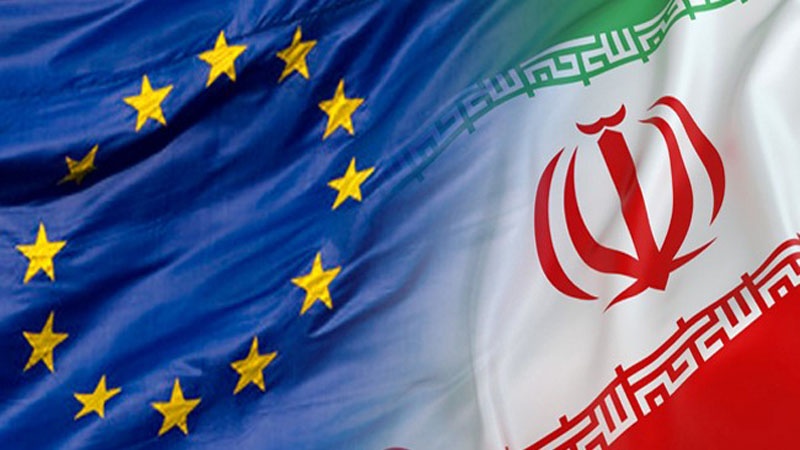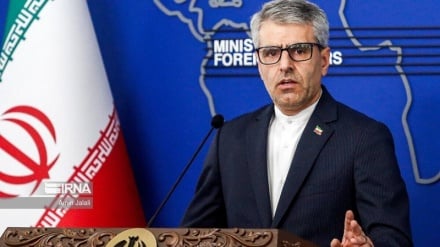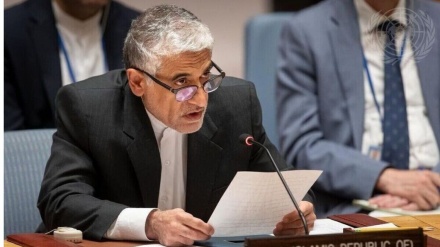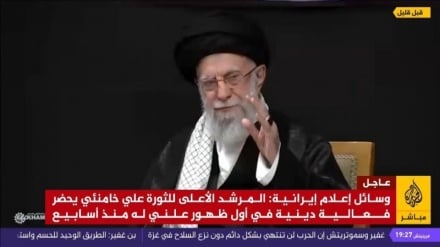Iran, EU relations in post-JCPOA era (2)
With due regard to the approach governing international relations, and the significant importance of national interests, and the interests of the private sector, it seems that upon the emergence of disputes between the European Union and the US over interests, the cooperation and interaction of the two parties reduces, and rivalry between the two of them intensifies.
The rivalry over presence in the Iranian market has commenced among European countries; and between Europe and the US, particularly in the non-governmental domain, and commercial companies. Under this atmosphere, commercial interests are more important than any other factor. The negotiations of major oil and gas companies, major global automakers, and giant plane manufacturing companies such as Airbus and Boeing have begun with Ministries of Oil, Industries, and Roads & Urban Development.
Naturally, these companies are keen to conclude deals with Iran in the realms of oil, natural gas, auto making, and plane sales. Meanwhile, a number of agreements have been sealed to this end; one of which is for sales of planes. In the meantime, one of the main hurdles in expansion of European Union-Iran relations is the sanctions imposed by the US, and heavy fines imposed by the US Treasury against major European banks, in recent years, totaling 15 billion euros, which in turn have generated major concerns among large European companies, as a whole, and major European banks, in particular, forcing them to be overcautious about tapping into Iran’s market. The psychological impacts which remain from the era prior to implementation of the Joint Comprehensive Plan of Action, and fear over possible punishments by the US still overshadow the outlook and conduct of European companies in cooperation with Iran.
One of the topics of importance in the relations of European Union with other countries is the remarks made by the European officials about the state of human rights. In fact, in majority of cases, the topic of human rights turns into a political tool of the European Union member states, in regulation of their relations with third countries. Usually, European Union member states maintain large-scale relations with regimes, which maintain appalling state of human rights, and breach some of the most basic human rights.
Thus, it should be noted that the topic of human rights in regard to regulation of the relations of European Union with third countries, is itself impacted by the general atmosphere of the relations and political and economic relations of European Union, and the general outlook of the European Union toward these countries.
On December 2002, the European Union and Islamic Republic of Iran decided to begin bilateral talks on human right topics in order to become familiar with each other’s viewpoints. Upon the halt of European Union-Iran talks in 2004, the two parties have not had direct talks and interactions about human rights, with the exception of some bilateral initiatives such as preparation of grounds for human right talks with Denmark which was underway in the waning months of 2010. In this period of time, different European organizations have issued resolutions and statements against Iran, based on the information they have gathered from radical, enemy, and terrorist groups, while concurrently announcing their interest to resume human right talks.
Nearly fifty statements and resolutions have been issued by the European Union against Iran, even amid the improvement of mutual relations. Nonetheless, Iran has announced its preparedness to hold human right talks with the European Union, based on equal footing. On this basis, Islamic Republic of Iran, in according to existing experiences, and via grant of importance to the fact that European regimes’ behavior toward the topic of human rights is politically-motivated and opportunistic in nature, has tried to prevent the European states from the misuse of the topic of human rights.
Some of the cases which the European Union has always taken into consideration in its relations with Islamic Republic of Iran are developments such as the takeover of US spy den in Tehran, the issue of the apostate Salman Roshdi, Iran’s legitimate support for freedom movements such as Lebanon’s Hezbollah, Palestine Islamic Jihad Movement, and Hamas Movement, which some European regimes baselessly refer to as terrorist outfits.
These are some of the cases which have impacted Iran-EU ties in the past three decades. In the view of Iran, the spiritual support of Islamic Republic of Iran for Lebanon’s Hezbollah and Palestinian groups is tantamount to support for groups which defend their countries’ freedom in the face of occupation and aggressions. Furthermore, Islamic Republic of Iran lambastes the double standards adopted by the European Union in support for the terrorist operations of the illegal Zionist entity. Islamic Republic of Iran believes that grant of refuge by European Union member states to some of the Iranian opponents are vivid cases of support for terrorist outfits.
On this basis, Islamic Republic of Iran believes grant of support by EU member states for MKO terrorist outfit, which has carried out hundreds of terrorist operations and has slaughtered innocent people of Iran is synonymous to support for terrorist outfits to an extent that these terrorists have been stationed in European countries such as France and Albania.
Developments in Middle East, especially in Iraq and Syria, and the crimes committed by Daesh and al-Nusra Front terrorist outfits in the region, has shaped a climate of fear across the region. The current conditions have emerged in a swift and unexpected manner, catching everyone off guard. Meanwhile, major European states maintain a significant role and status in this domain. This comes while the reaction of European states toward this crisis, and major human catastrophes has been belated and insignificant.
In the meantime there are high expectations in the regional and international levels from the European Union member states, which maintain an age-old precedent in regional equations, especially the equations in Iraq and Syria. This historical background has set the stage for the European Union to hold consultations and talks with powerful regional countries, especially Islamic Republic of Iran, in order to consider a purposeful approach for uprooting terrorism. It seems that the European Union has been very slow in realizing the depth of threats posed by Daesh terrorist outfit in Iraq and Syria and has made some miscalculations in regard to return of terrorists to Europe, and the ensuing threats posed by them in Europe.
Meanwhile, the important and powerful regional countries, especially Islamic Republic of Iran, Turkey, and Iraq, maintain highly important strategic status, and should reach a calculated and coordinated stand against these Takfiri groups. In the meantime, consultation and coordination between the European countries and Iran, as a large and important regional country, can be highly influential.
The Zionist regime of Israel and the Zionist lobby are the most important opponents of countries’ relations with Islamic Republic of Iran, and this opposition is fully evident in the trend of relations between the European Union and Iran. The illegal Zionist entity and the Zionist lobby, which have infiltrated different political, economic, commercial, and banking circles and the mass media of European countries, have made strenuous efforts in the past years to sabotage the expansion of the EU-Iran relations, and to obstruct the development and improvement of ties between the two parties.
The Zionist regime lobbies are present in the European Parliament and are intent on shaping a negative outlook towards Iran’s events and developments. These Zionist lobbies, on one hand, intend to establish a negative view toward Islamic Republic of Iran, and to obstruct the promotion of the cooperation of European Union member states with Iran, on the other hand.
The other group of opponents of expansion of EU-Iran ties is the non-European states, out of the Western bloc. Some of the Arab reactionary regimes, led by Aale Saud, do not want the normalization and promotion of the European Union’s relations with Islamic Republic of Iran and even carry out overt and covert measures to this end.
These regimes imagine that improvement of Iran’s relations with European states endangers these non-European states’ role in regional and international relations, and thus make every effort to somehow shape a negative atmosphere against Islamic Republic of Iran.
One of the other important factors in formation of distrust in the path of relations of Islamic Republic of Iran with the European Union are the US and British regimes.
MR/SS



